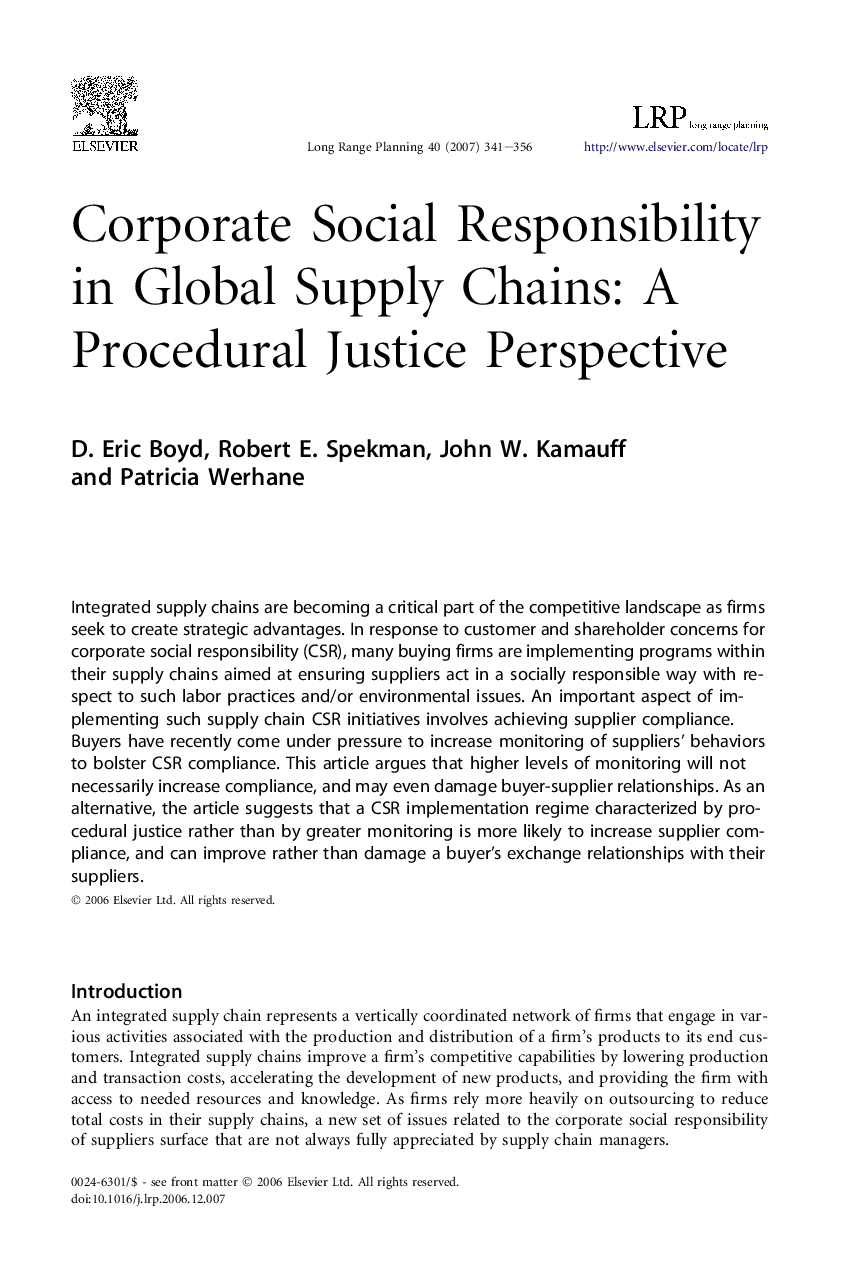| Article ID | Journal | Published Year | Pages | File Type |
|---|---|---|---|---|
| 1021658 | Long Range Planning | 2007 | 16 Pages |
Integrated supply chains are becoming a critical part of the competitive landscape as firms seek to create strategic advantages. In response to customer and shareholder concerns for corporate social responsibility (CSR), many buying firms are implementing programs within their supply chains aimed at ensuring suppliers act in a socially responsible way with respect to such labor practices and/or environmental issues. An important aspect of implementing such supply chain CSR initiatives involves achieving supplier compliance. Buyers have recently come under pressure to increase monitoring of suppliers’ behaviors to bolster CSR compliance. This article argues that higher levels of monitoring will not necessarily increase compliance, and may even damage buyer-supplier relationships. As an alternative, the article suggests that a CSR implementation regime characterized by procedural justice rather than by greater monitoring is more likely to increase supplier compliance, and can improve rather than damage a buyer's exchange relationships with their suppliers.
